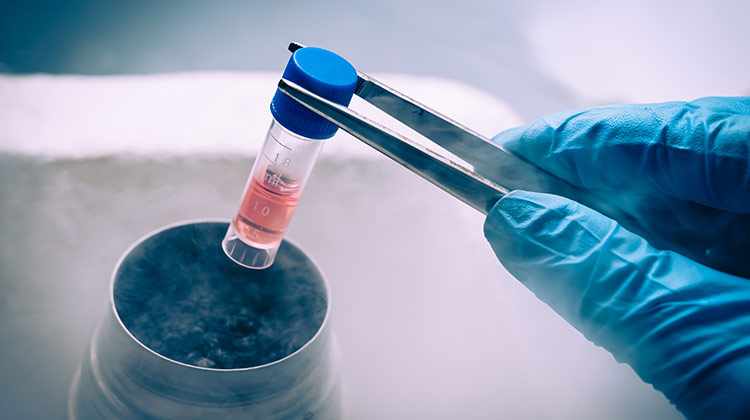Bone marrow transplantation
 Bone marrow is the name given to the spongy tissue that is located in the middle of the bones and contains blood-forming stem cells. This tissue produces blood cells necessary for human life and ensures their circulation within the body. Bone marrow transplantation is required in cases where the bone marrow does not work or the blood cells produced are not sufficient.
Bone marrow is the name given to the spongy tissue that is located in the middle of the bones and contains blood-forming stem cells. This tissue produces blood cells necessary for human life and ensures their circulation within the body. Bone marrow transplantation is required in cases where the bone marrow does not work or the blood cells produced are not sufficient.
Frequently Asked Questions
What is Bone Marrow Transplantation, How Is Bone Marrow Transplant Done?
Bone marrow transplantation, which has a very important place in the treatment of blood diseases other than cancer, especially cancer, takes place in two ways as autologous and allogeneic. The main difference between these two stem cell transplants is; In autologous stem cell transplantation, the patient's own stem cells are used, while in allogeneic stem cell transplantation, stem cells from a healthy donor are used. The collected stem cells are given to the patient intravenously.
What is Autologous Stem Cell Transplantation?
In autologous stem cell transplantation, the source of stem cells is the patient himself. The patient's own stem cells are taken and given back to him. It is generally used in the treatment of diseases such as lymphoma and multiple myeloma.
In this type of transplant, first of all, healthy blood-forming stem cells from the patient are collected. Then, the collected cells are frozen with special methods and stored until the transplant takes place. In this treatment, high doses of chemotherapy and radiotherapy are given to the patient and the remaining cancerous cells are targeted to be destroyed, but healthy stem cells die as well as cancerous cells. Therefore, after this high-dose treatment, stem cells that were previously collected and stored are returned to body temperature and transferred to the patient.
What is Allogeneic Stem Cell Transplantation?
In allogeneic stem cell transplantation, stem cells are taken from people who are suitable for the patient's tissue group and transplanted to the patient. Nearly complete tissue compatibility is sought between the donor and the patient.
In this treatment, high doses of chemotherapy and radiotherapy are primarily administered to the patient. This process destroys the patient's blood-forming cells, as in autologous stem cell transplantation. Then the stem cells taken from the donor are transplanted to the patient. Transplant stem cells that settle in the bone marrow begin to produce new blood cells.
What Should Be Considered After Bone Marrow Transplantation?
After a bone marrow transplant, some precautions need to be taken to continue to maintain health. The patient's immune system is weakened due to the drugs used before and after the transplant. This means that even the smallest infection can be life-threatening. Therefore, it is very important for the patient to lead a sterile life until the immune system recovers, and to be protected from infections for about 1 year, especially for the first 3 months. Particular attention should be paid to the following after bone marrow transplantation;
• A special and sterile environment should be prepared for the patient; If possible, a room of its own should be allocated.
• The patient's room should be cleaned and ventilated when the patient is not in the room.
• Bed linen should be washed at least twice a week, curtains and other linens should be washed at intervals of two weeks.
• Pay attention to personal hygiene
• Mask should be used when going out of the house or when visitors come to the house.
• Close contacts such as handshaking, kissing, hugging should be avoided.
• People with contagious diseases such as flu and cold should be avoided; even if possible, no visitors should be allowed inside the house.
• Avoid places such as hospitals, cinemas, shopping malls, public transportation vehicles that are at risk of infection.
• Places such as pool, sea, sauna should be avoided.
• Sunscreen should be applied before going out in the sun and should not be exposed to direct sun rays.
• Raw and undercooked foods should not be consumed.
• Attention should be paid to the hygiene and expiration date of the food.
• The patient's medications, diet and daily exercises should be adjusted as recommended by the doctor.
Bone marrow transplantation is a long treatment process in which the patient needs intensive care and attention after transplantation. You can follow World Health to spend this process more positively and learn more about bone marrow transplantation.
 Bone marrow is the name given to the spongy tissue that is located in the middle of the bones and contains blood-forming stem cells. This tissue produces blood cells necessary for human life and ensures their circulation within the body. Bone marrow transplantation is required in cases where the bone marrow does not work or the blood cells produced are not sufficient.
Bone marrow is the name given to the spongy tissue that is located in the middle of the bones and contains blood-forming stem cells. This tissue produces blood cells necessary for human life and ensures their circulation within the body. Bone marrow transplantation is required in cases where the bone marrow does not work or the blood cells produced are not sufficient.



